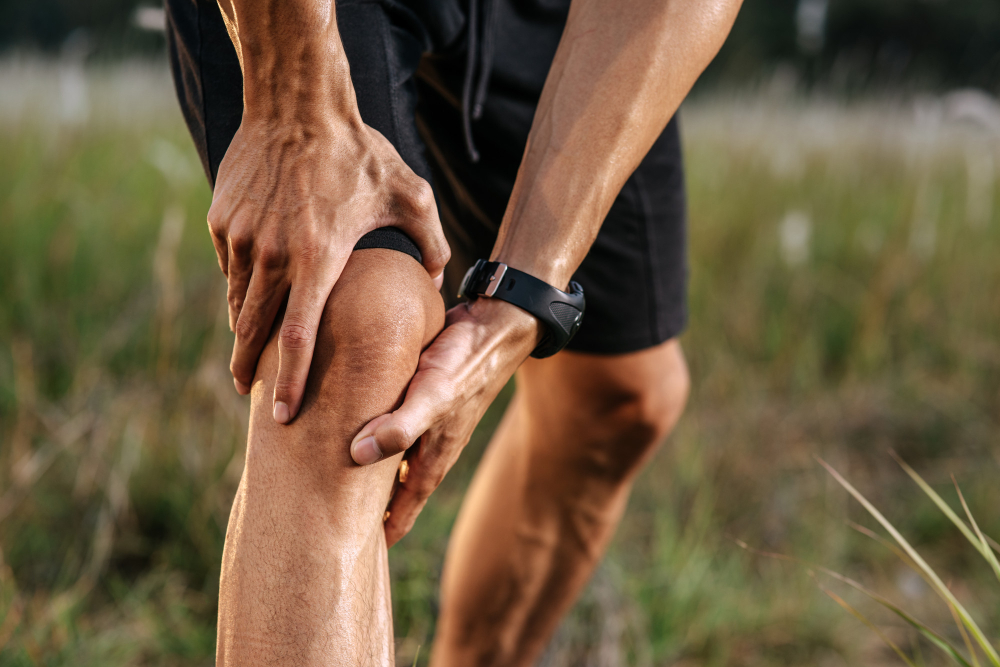Knee Pain

Knee pain is a common ailment that affects people of all ages. It can result from various factors, ranging from acute injuries to chronic conditions. Understanding the causes, symptoms, and treatment options for knee pain is crucial for effective management and improving your quality of life.
Causes of Knee Pain
Knee pain can stem from numerous causes, including injuries, overuse, and medical conditions. Common causes include:
- Injuries: Such as ligament tears (ACL, MCL), meniscus tears, and fractures.
- Arthritis: Including osteoarthritis, rheumatoid arthritis, and gout.
- Bursitis: Inflammation of the bursae, the small fluid-filled sacs that cushion the knee joint.
- Tendinitis: Inflammation of the tendons, often due to overuse.
- Mechanical Problems: Such as dislocated kneecap or iliotibial band syndrome.
Symptoms of Knee Pain
The symptoms of knee pain can vary depending on the underlying cause. Common symptoms include:
- Swelling and stiffness
- Redness and warmth to the touch
- Weakness or instability
- Popping or crunching noises
- Inability to fully straighten the knee
Diagnosis and Evaluation
Diagnosing knee pain involves a thorough evaluation by a healthcare professional. This typically includes:
- Medical History: Discussing your symptoms, medical history, and activity level.
- Physical Examination: Checking for swelling, pain points, and range of motion.
- Imaging Tests: Such as X-rays, MRI, or CT scans to visualize internal structures.
- Lab Tests: Blood tests or joint fluid analysis to detect infections or conditions like gout.
Treatment Options
Treatment for knee pain varies based on the cause and severity. Common treatment options include:
- Medications: Anti-inflammatory drugs, pain relievers, and corticosteroids.
- Physical Therapy: Exercises to strengthen muscles around the knee, improve flexibility, and enhance balance.
- Injections: Advanced treatments like PRP (Platelet-Rich Plasma) and BMAC (Bone Marrow Aspirate Concentrate) injections to promote healing and reduce pain.
- Ozone Therapy: A non-surgical option to reduce inflammation and pain.
- Surgery: In severe cases, procedures like arthroscopy or knee replacement may be necessary.
Prevention and Self-Care
Preventing knee pain involves adopting healthy habits and making lifestyle adjustments:
- Maintain a Healthy Weight: Excess weight puts additional stress on the knee joints.
- Exercise Regularly: Engage in activities that strengthen the muscles around your knees, such as walking, swimming, and cycling.
- Proper Technique: Ensure correct form and technique during physical activities and sports to avoid injury.
- Wear Supportive Footwear: Choose shoes that provide adequate support and cushioning.
- Avoid Overuse: Gradually increase activity levels to prevent overuse injuries.
Seeking Professional Help
If you experience persistent or severe knee pain, it is important to seek professional medical advice. Early diagnosis and treatment can prevent further damage and improve long-term outcomes. A healthcare provider can develop a personalized treatment plan tailored to your specific needs, helping you manage pain and maintain an active lifestyle.
Knee pain can be effectively managed with the right approach, allowing you to continue enjoying your daily activities and maintaining a high quality of life.

